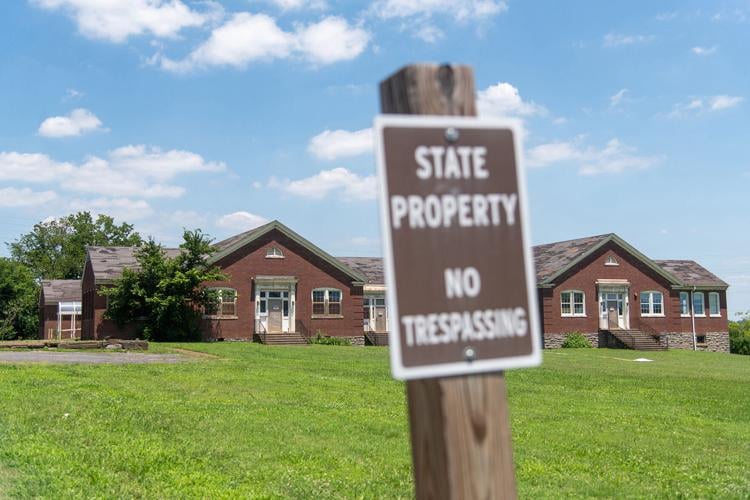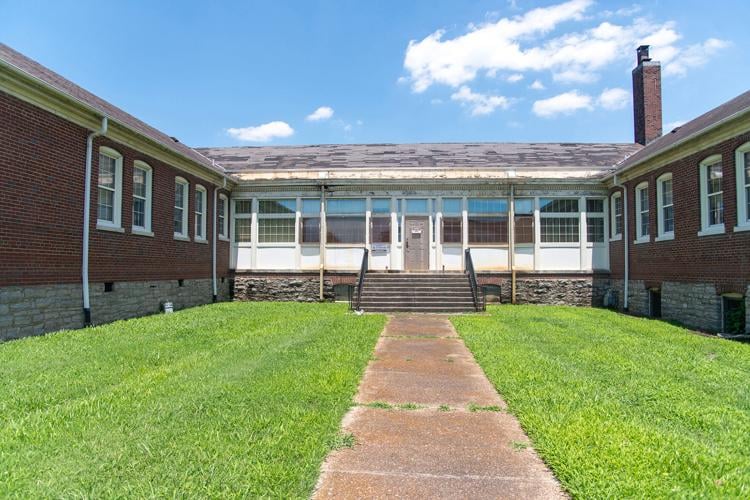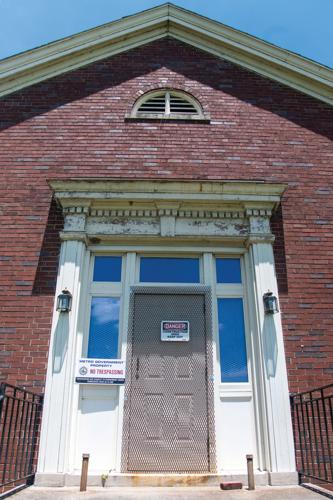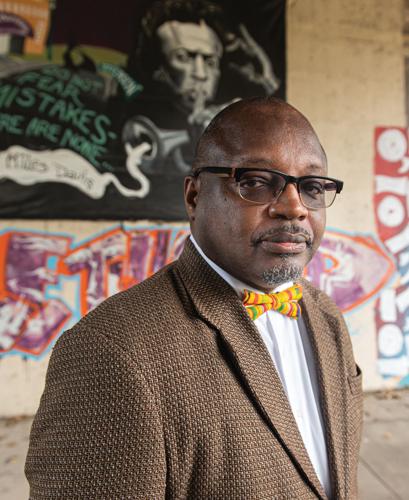
88 Hermitage Ave.
Street View is a monthly column in which we’ll take a close look at development-related issues affecting different neighborhoods throughout the city.
88 Hermitage Ave. is a site of unique historic significance. While the state of Tennessee has properties that at one point housed segregated schools, the Hermitage Avenue building is one of the only remaining properties of segregated schools for people with disabilities. It’s the former site of the Tennessee School for the Blind’s “Colored Department” — a school that according to historian Learotha Williams serves as “a monument to how African Americans tried to navigate Jim Crow.”
The city purchased 88 Hermitage from the state on June 7, 2022, saving it from the uncertainty of a sale to private developers. The Metro Nashville Planning Department and the nonprofit Historic Nashville Inc. agree that the property is worth preserving. But what exactly will happen to the School for the Blind is still a mystery.

88 Hermitage Ave.
The Tennessee School for the Blind’s “Colored Department” was the school’s segregated campus for visually impaired Black children from 1940 to 1965. The campus’s creation coincided with the Black Women’s Club movement — a group of powerhouse political activists in the 19th and 20th centuries who organized vital services for people in poverty, campaigned to end lynching, helped women win the right to vote and provided crucial support to their local communities. These same women supported Black children at the Tennessee School for the Blind as teachers, nurses and patrons.
“Out of all the vulnerable people in Tennessee at the time, I humbly submit to you that poor, blind Black children were some of the most vulnerable,” says Williams. “I’m mindful that they created the space as a result of Jim Crow, as a desire of them not to have those children intermingling with white children. But nonetheless, and this is the case with a lot of things with Jim Crow, you take something that was put together maybe as an afterthought, and it ends up having tremendous significance.”
The 88 Hermitage Ave. parcel includes about 2.5 acres of land adjacent to Wharf Park. In 2019, a plan to buy the property from the state for just over $11 million failed in the Metro Council. (Initially, planners proposed relocating Nashville School of the Arts to the site, but plans included demolishing the School for the Blind campus.) At the time, Mayor John Cooper — then an at-large councilmember — voted against the deal.
The planning department is currently evaluating potential uses for the parcel, and these plans include preserving the School for the Blind campus. The buildings have been vacant for a number of years, and building surveys have revealed asbestos and structural issues. When the Metro Council voted to acquire the property in 2022, they commissioned a study that estimated restoration costs would be about $8 million.

Historian Learotha Williams
Metro Nashville Planning Department communications director Richel Albright says the 88 Hermitage team couldn’t provide a public update for the property’s proposed use, but they are evaluating responses from their feasibility study, including public comments from a meeting in January. “The consultant team has reviewed stakeholder and community feedback and performed technical analysis to advance the feasibility study,” Albright says. “We are working with them to hold a community meeting later this summer that outlines the possibilities for the site, which will include some of the feedback we received at our last meeting.”
One option for the parcel is affordable housing. Before the council voted on acquiring the property, planning department housing director Angie Hubbard confirmed that the property would be considered as part of Metro’s effort to convert unused parcels into much-needed affordable housing stock.
In a recent Budget and Finance Committee Meeting, Councilmember Courtney Johnston sparked debate when she suggested the city sell 88 Hermitage to raise funds to buy the Morris Memorial Building, another historically significant site. “Why do we need two buildings that we’re doing absolutely nothing with that have massive renovation costs?” Johnston asked. “We can’t save the world, we have to start prioritizing.”

88 Hermitage Ave.
District 29 Councilmember Delishia Porterfield and Councilmember At-Large Zulfat Suara, both of whom are Black, took to the mic to respond. “It’s not appropriate to say we can sell one Black building to buy another Black building,” said Porterfield. Suara criticized Nashville’s lack of urgency when considering properties significant to Black history. “That is the problem that I’ve seen with this city,” she said. “Our priorities are warped, and when it comes to the African American community, it’s always asked to be placed on the back burner. This building has been in the Capital Improvements Budget for a long time; there’s been a lot of talk about a museum for a long time. But every time there’s always something bigger, better that we want to do. And for somebody to disparage it by saying let’s sell another building for another building, it’s insulting.”
In an email to the Scene Johnston explains that she’d like to see capital funds spent on 88 Hermitage go to other infrastructure needs like sidewalks or real estate. She also says she didn’t like that Metro purchased the property without a plan. “If you’re going to purchase a dilapidated building with taxpayer funds, it needs to be at a price with a great use planned for it.” she says. “Metro was not doing that when we purchased 88 Hermitage Ave.”
While the site’s future is unclear, the School for the Blind is still standing. Williams says it represents “a deep history that we’re just now starting to appreciate,” and its future will reflect Nashville’s priorities.
“The city historically has had a bad track record,” he says. “Our first inclination is to tear down in the name of public improvement, and that destruction has led to the erasure of some of the most historic sites in the city, if not the country.”
“This space is representative of our history,” he continues. “And how we respond to it, how we act and how we deal with it is a reflection of Nashville in the 21st century. Are we going to fight to preserve the past, or are we going to continue our policy of marginalization and erasure?”
Correction: A previous version of this article incorrectly attributed work by the Metro Nashville Planning Department to the Metro Development and Housing Agency. We apologize for the error.








